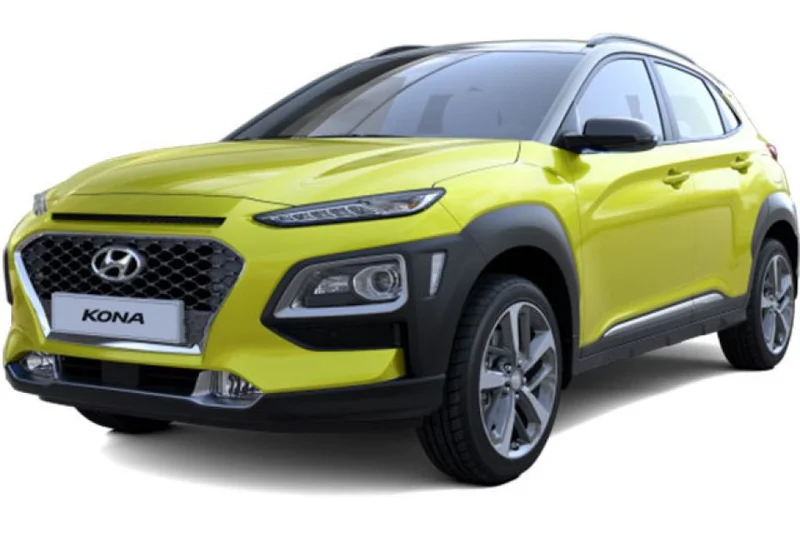Hyundai's Labor Lawsuit and Future Car Market Impact: What We Know
Hyundai's Crossroads: Between Exploitation and Electrification
Okay, folks, buckle up, because we've got a lot to unpack with Hyundai. It's a story of incredible innovation bumping headfirst into some seriously troubling ethical questions. We're talking about a company simultaneously pushing the boundaries of electric vehicle technology while facing accusations of exploiting vulnerable workers. It's like watching a rocket ship being built on a foundation of quicksand.
Let's start with the shiny stuff, shall we? Hyundai's electric ambitions are no secret. They're pumping out some seriously impressive EVs, like the Ioniq series, cars that promise a greener, more sustainable future. And that’s where the first punch to the gut comes. A recent article highlighted the frustrating reality of paywalled repairs. Imagine this: you've got an Ioniq 5N, tearing it up at the track (because let’s be honest, who wouldn’t?), and you need to change the brake pads. Seems simple, right? Not so fast. Hyundai, in what feels like a slap in the face to the DIY community, is making it incredibly difficult, even locking down access to essential repair tools behind expensive subscriptions meant for "service professionals." It's a move that feels decidedly not Right-to-Repair friendly, and honestly, it leaves a bad taste in my mouth. Why make it harder for people to maintain their own vehicles, especially when electrification should be simplifying things? Hyundai Paywalls Brake Pad Changes
But that's just the tip of the iceberg. The truly alarming news revolves around allegations of labor exploitation within Hyundai's supply chain. A recent lawsuit alleges that Hyundai and Kia are benefiting from the exploitation of children, immigrants, and even prison inmates in their Alabama and Georgia operations. I mean, wow. The idea that a company could be simultaneously touting its commitment to sustainability and innovation while allegedly relying on such abhorrent labor practices… it’s a cognitive dissonance of epic proportions.
State Senator Maria Elena Durazo put it perfectly: "How can our public agencies purchase vehicles from a company whose supply-chain practices would be illegal here? And what message does it send if we continue business as usual?" It's a question that demands an answer, and frankly, it's one that could have massive implications for Hyundai's future in markets like California. The lawsuit even seeks to ban the sale of Hyundai vehicles in California until these "unconscionable" labor practices are addressed. That’s a huge deal. California lawsuit seeks to ban sale, marketing of Hyundai vehicles in the state until “unconscionable” labor practices end

A Pivotal Choice: Ensuring Innovation Serves Human Dignity
The Fork in the Road
So, where does this leave us? Hyundai stands at a critical juncture. On one hand, they're positioning themselves as leaders in the electric vehicle revolution, providing vehicles for events such as the G20 Leaders’ Summit. On the other, they're battling serious accusations that threaten to undermine their entire brand. It's like watching a high-stakes chess match, where every move could determine the company's fate.
The response from Hyundai has been… well, let's just say it hasn't been entirely convincing. They've issued statements denying the allegations, claiming they prioritize the safety and well-being of their workforce. But words are cheap, aren't they? What's needed is concrete action, a transparent investigation, and a genuine commitment to ethical labor practices.
And this isn't just about Hyundai, folks. This is about the entire automotive industry. It's about holding companies accountable for their actions and ensuring that the pursuit of profit doesn't come at the expense of human dignity. Because if we allow these kinds of practices to continue unchecked, what kind of future are we building? What kind of world are we leaving for the next generation? Imagine a world where innovation is celebrated, but only if it's built on a foundation of fairness and justice.
Time for Hyundai to Choose
Hyundai is at a crossroads. They can continue down this path of alleged exploitation and face the consequences, or they can choose a different path, a path of transparency, accountability, and ethical leadership. The choice is theirs, but the clock is ticking. I, for one, am hoping they make the right decision. Because the potential of their technology is undeniable, but it will all be for naught if it's tainted by injustice.
